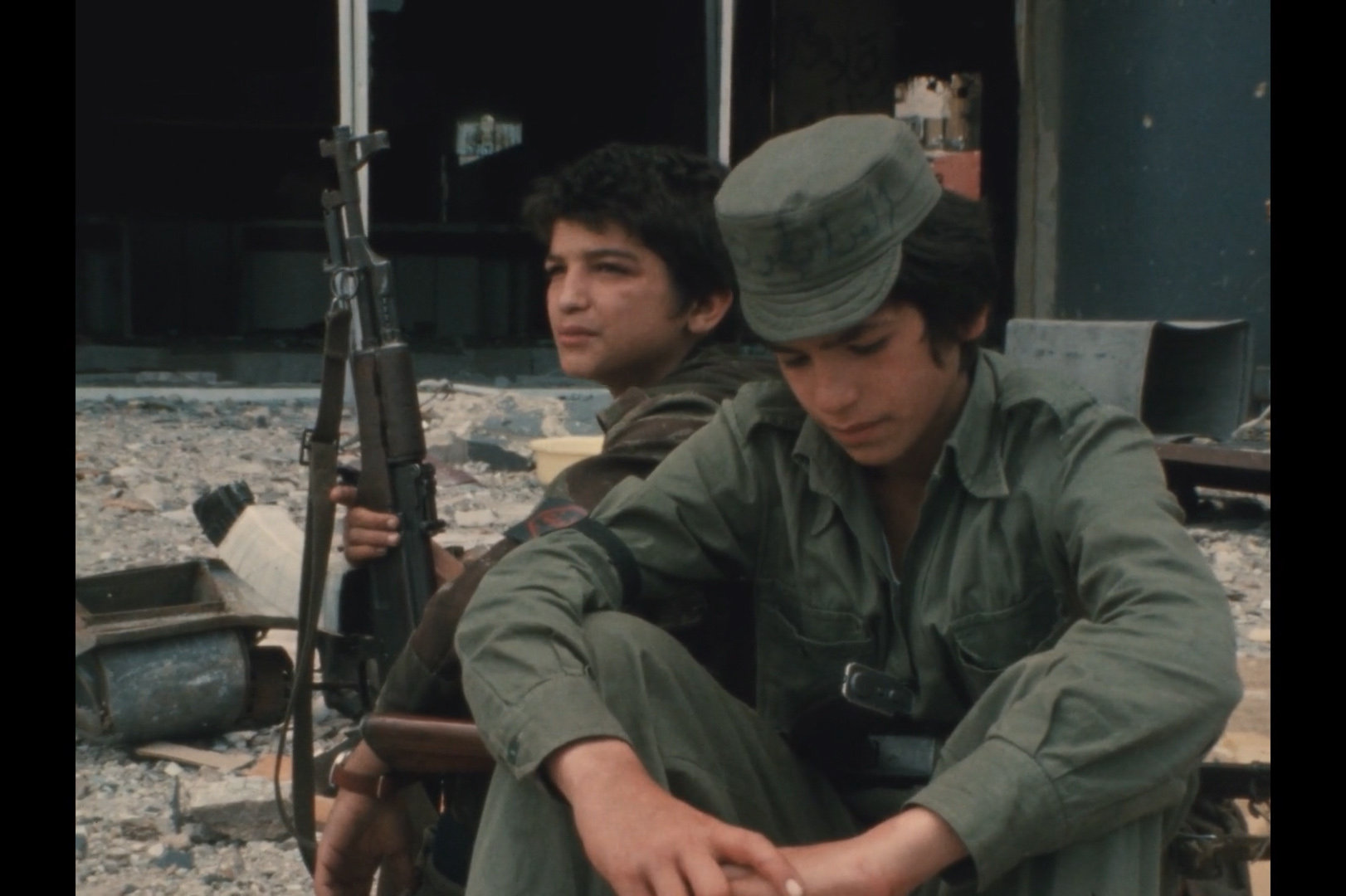1976 - The first years of war - FREE ADMISSION
War reporter in the MENA region since 1973, Jocelyne Saab starts covering the conflict in Lebanon by giving a voice to different struggling factions. Step by step, her cinema moves away from the classic form of reportage and embraces poetry, to speak in a different way about a world that is collapsing.
- The Palestinian Women, 1974, OmeU French with En & Ar Sub, 16 min
- The Rejection Front, 1975, color, OmeU French with En & Ar Sub, 16 min
- Children of War, 1976, color, OmeU French with En & Ar Sub, 10 min.
- Beirut Never Again, 1976, color, OmeU French with En & Ar Sub, 35 min.
Followed by a discussion with Myrna Maakaron and Mathilde Rouxel
---------------------------
Jocelyne Saab is one of the most prolific and important Lebanese filmmakers of her time. Her career began as a war reporter, before she decided to strike out on her own and independently cover the civil war that was tearing her country apart.Jocelyne Saab made 12 films in Lebanon between 1974 and 1982, offering rare coverage of the Lebanese conflict through an unprecedented visual poetry. On the occasion of their new release, these films are shown in Berlin for the first time in their restored versions.
---------------------------
ENGL.
The Divan and Babylon have launched a new initiative in Berlin, which includes the screening of an Arab film or program regularly.
The Divan Arab Film program kicks off on Nov. 11, 2023 with a retrospective of restored films by Jocelyne Saab, the acclaimed Lebanese-French director. Please stay also tuned for the 2024 Divan Arab Film Program which will be announced in December.
The Divan - the Arab House of Culture - pursues the vision of bringing German and Arab culture closer together and building bridges between the Occident and the Orient. The aim of the Divan is to make Arab culture more visible to German society in the fields of art, music, literature, film, performing arts and language, as well as to expand the Arab-German cultural dialogue through cultural activities.
The Divan was opened in 2017 by then German Foreign Minister Sigmar Gabriel and his Qatari counterpart Mohammed Bin Abdulrahman Al Thani. The choice of name was inspired by Johann Wolfgang Goethe's famous collection of poems "West-östlicher Divan." The Divan is based in the neoclassical Villa Calé in Berlin-Zehlendorf. The house offers space for intercultural encounters and intensive exchange and is to be increasingly filled with life in the coming years.
DEU
Der Divan und das Babylon haben eine neue Initiative in Berlin gegründet, bei der in regelmäßigen Abständen ein arabischer Film oder ein arabisches Film-Programm gezeigt wird.
Der Auftakt des Divan Arab Film wird am 11. November 2023 mit einer Retrospektive restaurierter Filme von Jocelyne Saab, berühmte libanesisch-französische Regisseurin, gefeiert.
Das Programm für Divan Arab Film für 2024 wird im Dezember bekannt gegeben.
Der Divan – das Arabische Kulturhaus – verfolgt die Vision, die deutsche und arabische Kultur einander näher zu bringen und Brücken zwischen Abendland und Morgenland zu bauen. Ziel des Divan ist es, die arabische Kultur in den Bereichen Kunst, Musik, Literatur, Film, Performing Arts und Sprache für die deutsche Gesellschaft sichtbarer zu machen sowie den arabisch-deutschen Kulturdialog durch kulturelle Aktivitäten zu erweitern. Eröffnet wurde der Divan im Jahr 2017 vom damaligen Bundesaußenminister Sigmar Gabriel und seinem katarischen Amtskollegen Mohammed Bin Abdulrahman Al Thani. Die Wahl des Namens wurde durch die berühmte Gedichtsammlung „West-östlicher Divan“ von Johann Wolfgang Goethe inspiriert."
